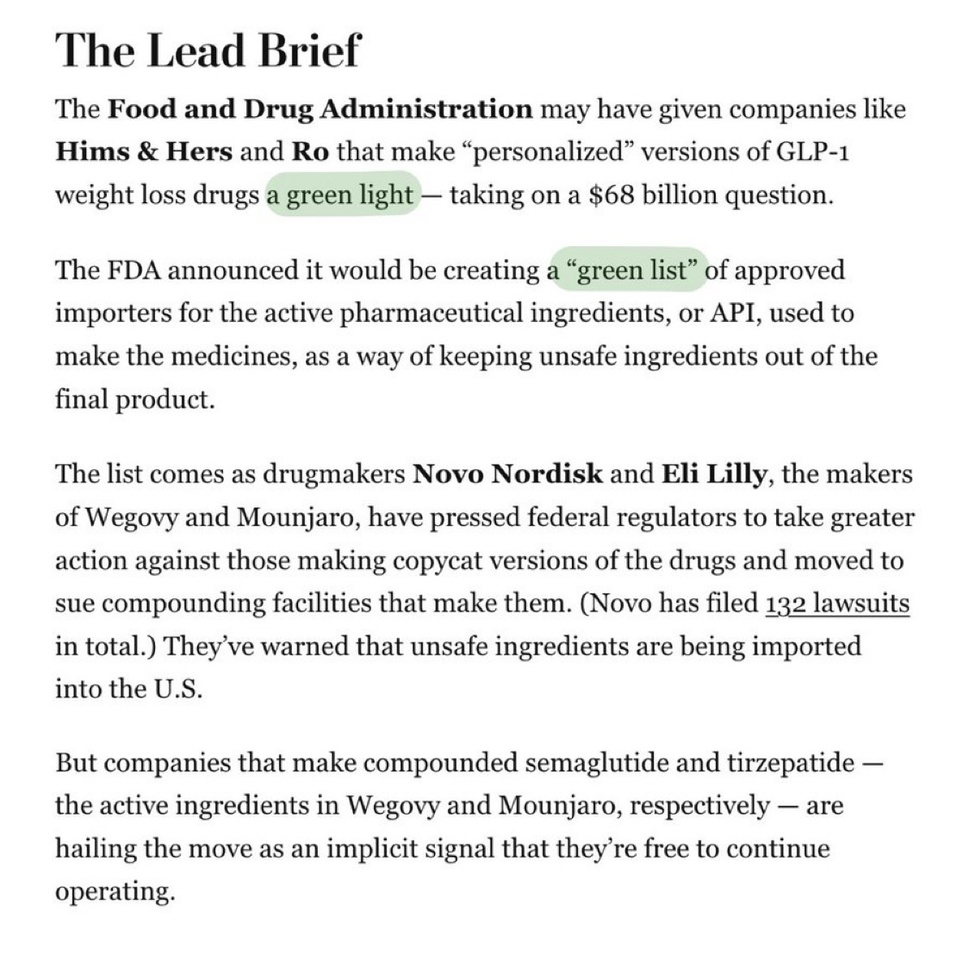$HIMS (-3,84 %)
$LLY (+1,53 %)
$NOVO B (-2,71 %)
Lee Rosebush (Chairman, OFA): "For a year now, we have heard from pharma manufacturers that it was illegal to compound GLP-1 medications. The FDA, through the acknowledgement of the green list, as well as their recent actions on adverse events, has implicitly acknowledged that compounding GLP-1s can occur."
Meanwhile, $LLY (+1,53 %) doubling down: "No one should be mass compounding tirzepatide."
Washington Post says U.S. anti-obesity market could reach $68B by 2034, citing Goldman Sachs.
Washington Post also notes (and it really is notable) that $NOVO B (-2,71 %) and $LLY (+1,53 %) have filed more than 100 lawsuits against compound manufacturers making GLP-1s... and not a single one on intellectual property violations.

Between the FDA's announcement of the Green List and this statement last week:
"FDA has received reports of adverse events associated with compounded versions of semaglutide and tirzepatide ... Many of the adverse events reported for compounded products appear to be consistent with adverse events associated with FDA-approved versions of these products."
"A compounded drug may be appropriate when a patient's medical need cannot be met by an FDA-approved drug or the FDA-approved drug is not commercially available."
While many media outlets and pharmaceutical companies are trying to portray the FDA's announcements as anti-compounding, it appears that the FDA has spoken out on whether this is possible ...
FDA concerns about unapproved GLP-1 weight loss drugs
Understanding unapproved versions of these drugs:



